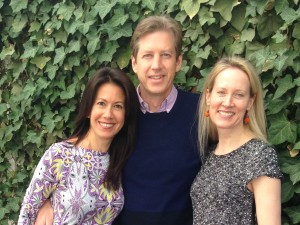The Westminster Concert Series will end its current season Monday with an all-Brahms concert.
Called “Trio of Trios,” the program will feature a sampling of the composer’s significant chamber works that don’t necessarily receive the attention they deserve: the Trio in A minor for Clarinet, Cello and Piano, op. 114; the Trio in E flat major for Horn, Violin and Piano, op. 40; and the Piano Trio No. 2 in C major, op. 87.
Playing these works are Utah Symphony members Yuki MacQueen, violin; John Eckstein, cello; Lee Livengood; clarinet; and Ron Beitel, horn. They’ll be joined by pianist and series director Karlyn Bond.
“These works represent the instruments Brahms fell in love with,” Bond said. And there is a personal connection to two of them, Bond added. “Brahms, of course, was a pianist, and his father played the horn.”
Brahms’ attachment to the clarinet came late in his life. “He fell in love with the sound of the clarinet after hearing Richard Mühlfeld [a renowned clarinetist and younger contemporary of Brahms] play Weber’s First Clarinet Concerto and Mozart’s Clarinet Quintet. He could listen to him for hours.”
What he liked about the clarinet was its range and the distinctive sounds for each of the three registers. “The low register is dark. The middle is velvety, and the upper register is spare,” Bond said. “And in a work like the trio he explores the full range of the instrument.”
The clarinet trio calls to mind late Beethoven, Bond said. “And it’s also what you expect from late Brahms [the work was written in 1891]. There is melancholy and resignation, and also reconciliation with his mortality. It’s strange in a lot of places and not really immediately accessible for general audiences.” But it’s also tantalizing and beautiful. “It’s ethereal and austere at the same time.”
The horn trio, written in 1865, is the earliest of the three works on the program, and not a work that’s heard in the concert hall frequently. “When Yuki suggested we do the horn trio, Ron was onboard right away,” Bond said. “It’s a work he hadn’t played in 20 years and he was ready to play it again.”
Brahms wrote the horn part for a valveless horn. “He knew it was impractical, but he wanted that particular sound,” Bond said. “Ron is mindful of that, and it effects the way he plays certain passages,” in order to try and recreate the sound the composer envisioned.
Of the three trios, the C major Piano Trio is by far the biggest. “It’s the most substantial, and it has a massive piano part,” Bond said.
The most interesting of the trio’s four movements, according to Bond, is the Andante. “It’s unique among his slow movements,” she said. “It’s a Gypsy influenced melody that is very potent and a bit dark, but not in a despairing way. The music is serious, but not sad. It’s my favorite single movement in the whole program.”
- CONCERT DETAILS
- What: “Trio of Trios: An Evening of Brahms”
- Venue: Vieve Gore Concert Hall, Westminster College
- Time and Date: 7:30 p.m. April 20
- Tickets: $15 general, free for students and Westminster College faculty and staff with I.D.
- Phone: 801-832-2457
- Web: www.westminstercollege.edu/culturalevents

